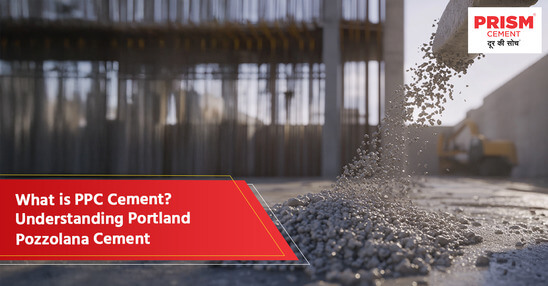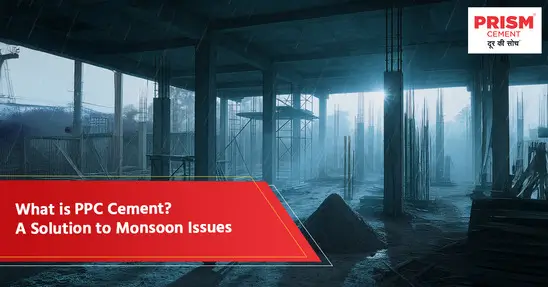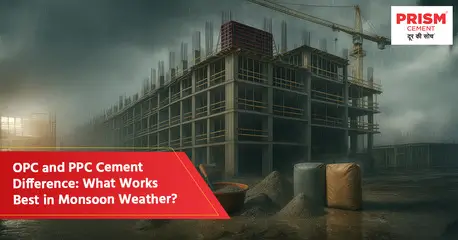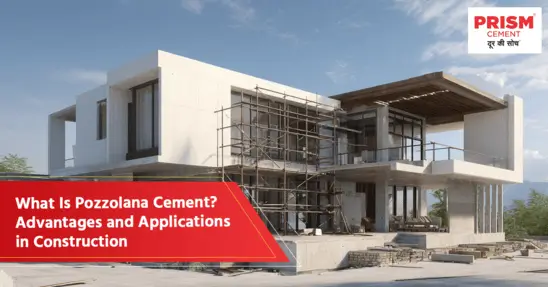When it comes to construction, cement plays a pivotal role in building strong and durable structures. Portland Pozzolana Cement (PPC) has emerged as the preferred choice of individual home builders due to its numerous advantages. In this blog, we dive into the world of PPC and answer questions such as:
What is Portland Pozzolana Cement?
PPC cement is a type of blended cement that combines clinker with pozzolanic materials. Pozzolanas are siliceous and aluminous materials that react with calcium hydroxide in the presence of water to form compounds with cementitious properties. This unique blend enhances the overall performance and durability of concrete.
Benefits of Using PPC Cement in Construction
PPC cement offers a range of advantages over traditional Cement:
- Enhanced Durability: The pozzolanic materials in PPC react with calcium hydroxide, thereby reducing the risk of alkali-silica reaction, which is a common cause of concrete deterioration.
- Improved Workability: PPC provides better workability, making it easier to handle and place.
- Increased Sulfate Resistance: The pozzolanas in PPC enhance its resistance to sulfate attack, a chemical reaction that can weaken concrete.
- Reduced Heat of Hydration: PPC cement generates less heat during hydration, thus reducing the risk of thermal stress and cracking.
- Lower Environmental Impact: The use of pozzolanic materials reduces the carbon footprint of cement production.
How is PPC Cement made?
The production of PPC cement involves the following steps:
- Clinker Production: Clinker is produced by heating a mixture of limestone and clay in a rotary kiln.
- Pozzolanic Material Preparation: Pozzolanic materials, such as fly ash or silica fumes, are processed and ground into a fine powder.
- Blending: The clinker and pozzolanic materials are blended in specific proportions to achieve the desired properties.
- Grinding: The blended materials are finely ground to produce PPC cement powder.
Applications of PPC Cement
PPC cement is widely used in various construction applications:
- Mass Concrete Structures: Dams, bridges and large foundations
- Marine Structures: Piers, jetties and offshore platforms
- Water Retaining Structures: Reservoirs, tanks and swimming pools
- Infrastructure Projects: Roads, highways and airports
- Residential and Commercial Buildings
Alternatives to PPC Cement
While PPC cement is an excellent choice for many construction projects, there are alternative types of cement available:
- Ordinary Portland Cement (OPC): A widely used cement, but it is not as environment-friendly as PPC.
- High-Strength Concrete (HSC): Used in high-stress applications, but it may be more expensive than PPC.
- Rapid-Setting Cement: Sets quickly, but it may be more prone to cracking if not cured properly.
Conclusion: Why PPC Cement Matters in Construction Projects
PPC cement offers a compelling combination of performance, durability and sustainability benefits. By understanding its advantages and applications, construction professionals can make informed decisions to build structures that will stand the test of time.
Now that you have the answer to the question - what is PPC cement, all that’s left is to choose a superior quality PPC cement. Prism Cement offers a range of high-quality cement products – such as Prism Champion All Weather Cement — designed to meet the diverse needs of the construction industry. Prism Cement’s expertise and commitment to innovation ensure that you have access to the right cement for your slab project.




